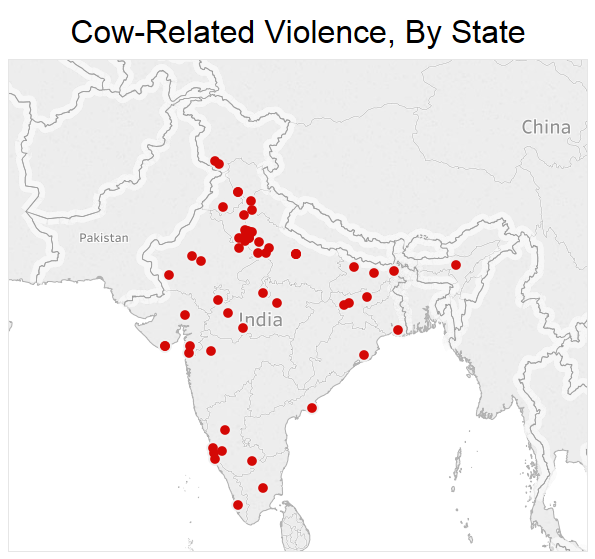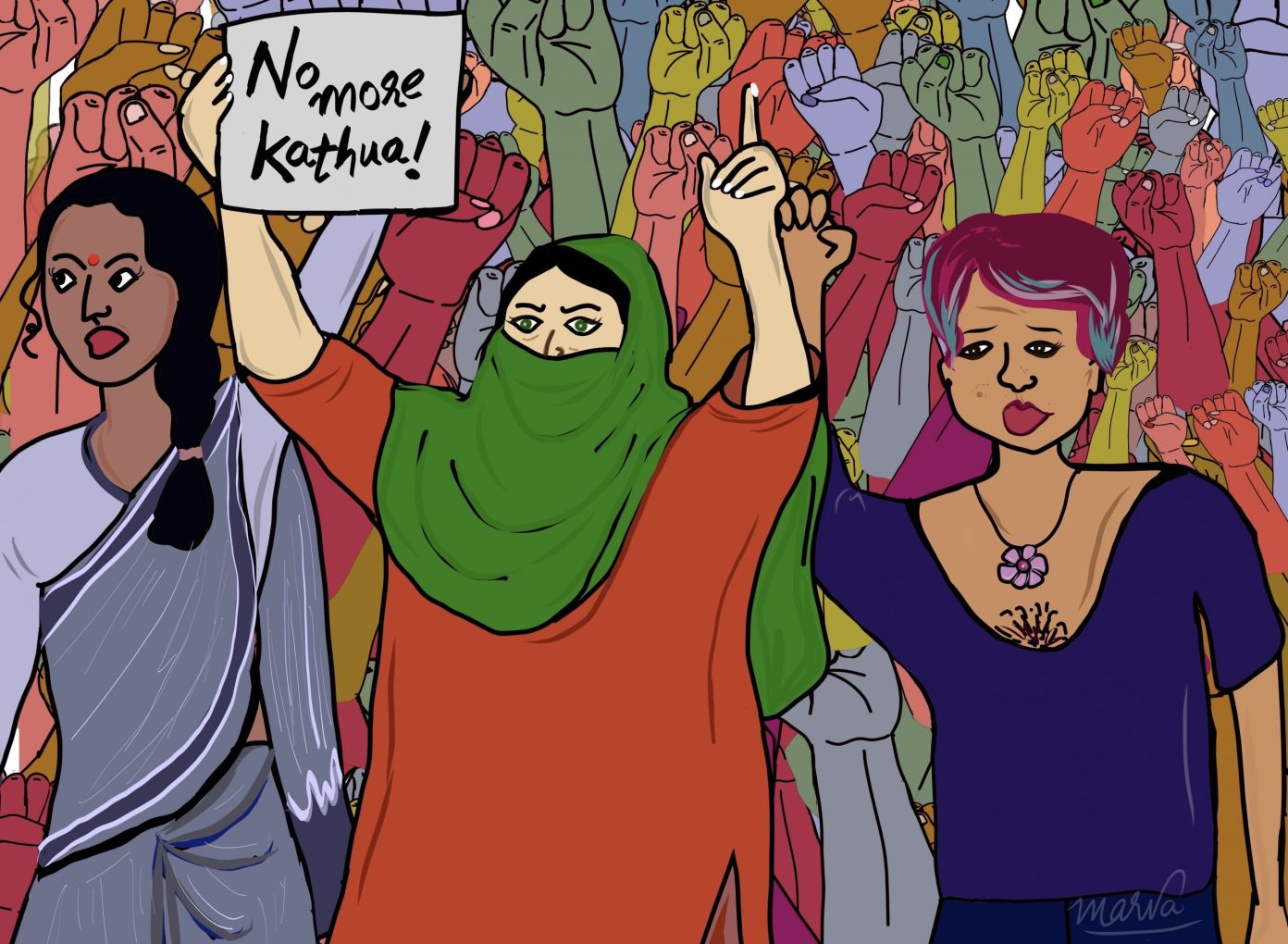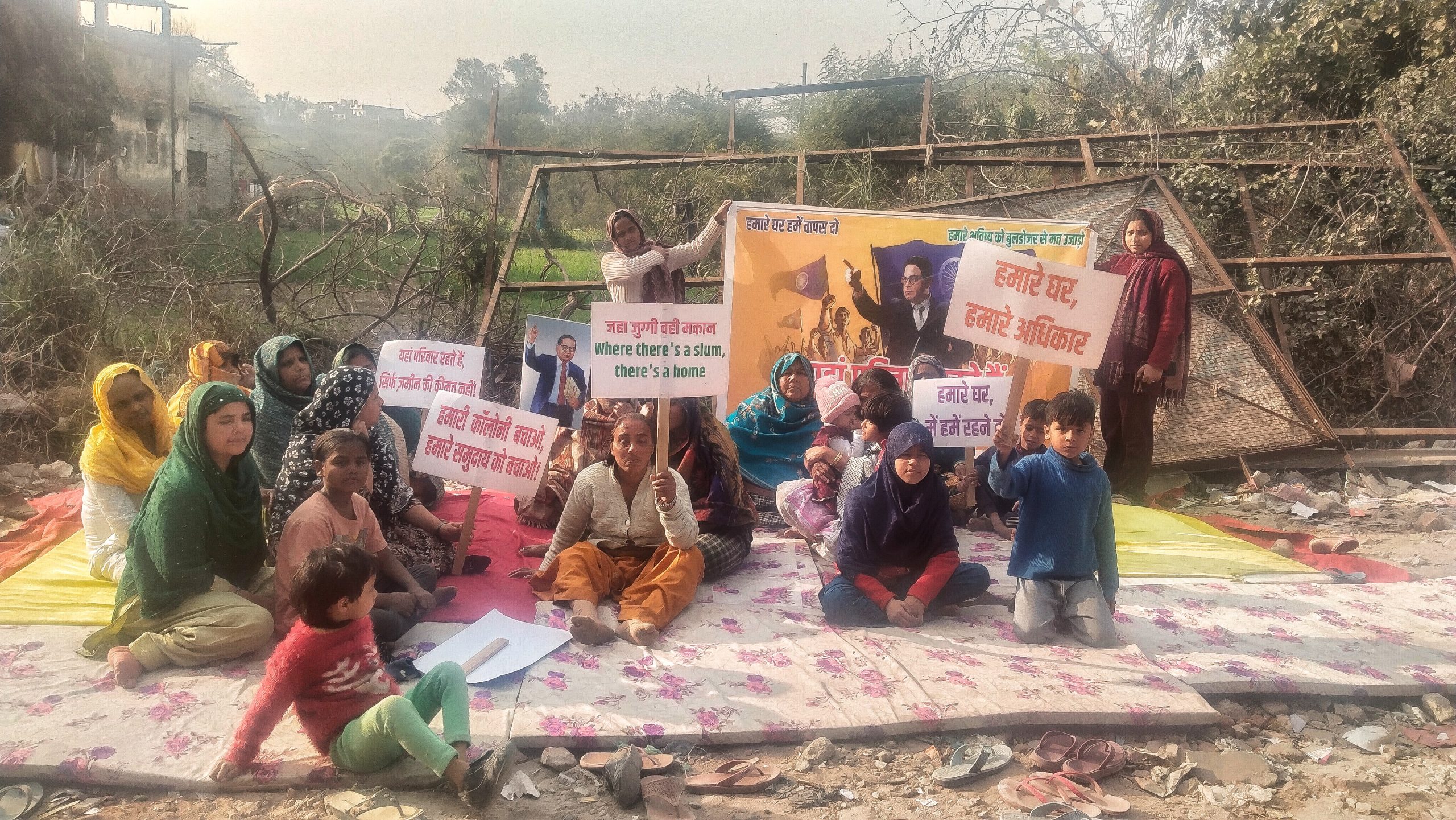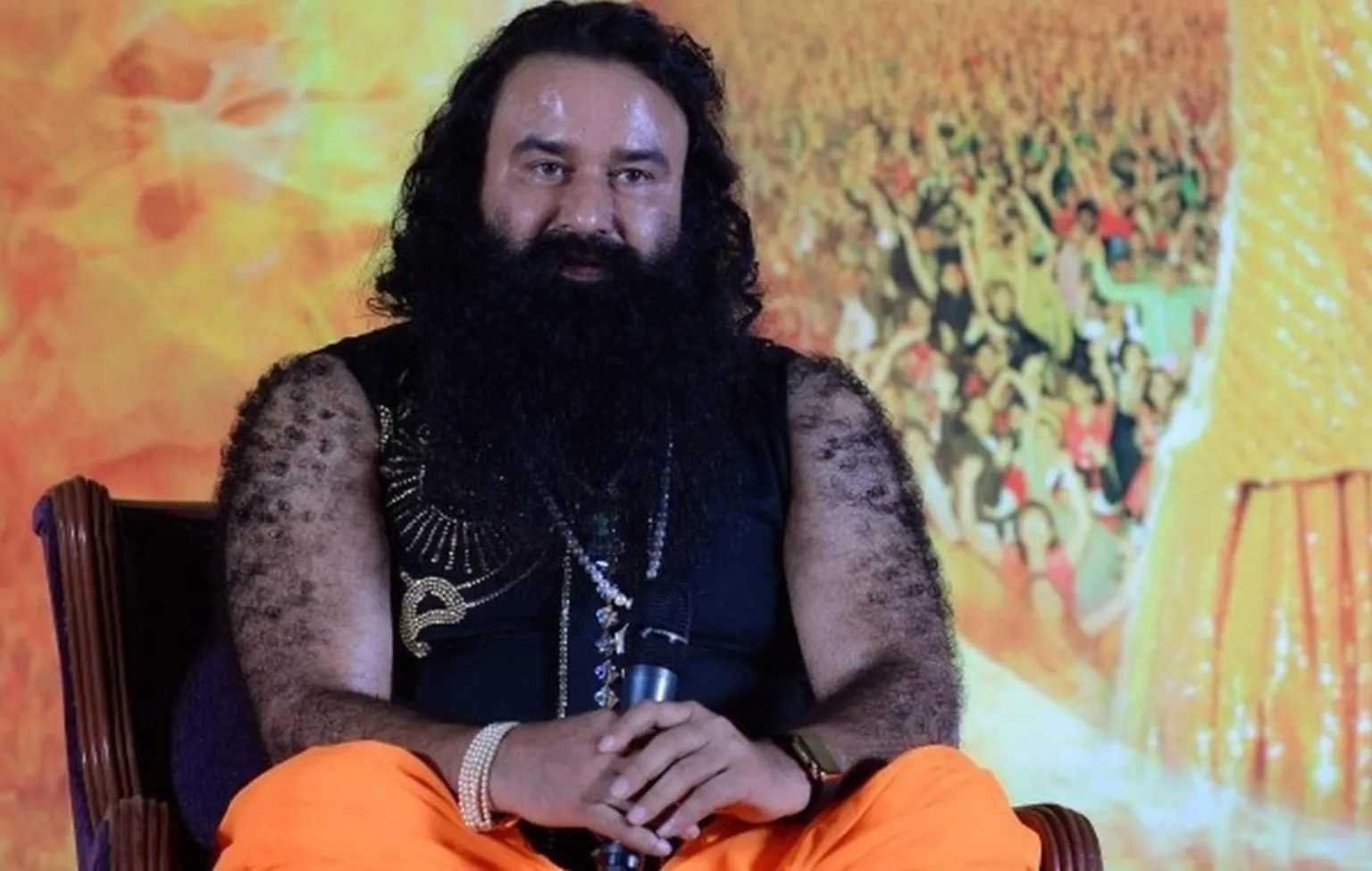A lot is being written about lynch mobs, about how a barbaric political order has gripped the nation killing innocents day by day. And needless to say, a lot is being written to deflect the issue, to showcase it as overhyped, to belittle it by calling it the opposition’s political agenda. However, the truth cannot be denied. A constitutionally secular country, one that takes pride in being the biggest democracy, one which is (or at least was) emblematic of ‘unity in diversity’ is nearly succumbing to forces of hate operating unperturbed within it. The atmosphere engulfing the country has various strings attached, as the citizens of this country are gradually realising.
These are hate crimes under the veil of cow protection
Junaid Khan, Mohammad Akhlaq, Pehlu Khan, Mohsin Sheikh, Zahid Rasool Bhat, Abu Hanifa, Riazuddin Ali, Zafar Hussain, Ayub Pandit are some names on the list of people lynched by mobs in the recent past. It doesn’t take more than a second to recognise the common thread that ties them together. These were Muslim men, most of them belonging to the economically weaker section.
Statistics prepared by India Spend has revealed that in the last seven years, 28 people have died in mob lynchings, and of these 24 people lynched have been Muslims, and that is a huge 86% of all. If the statistics do not sound convincing enough, then there are individual instances that prove the hatred against minorities as the sole purpose of these lynchings.
When Junaid and his brothers were attacked by the mob, the quarrel started over the sharing of seats in a train compartment. Soon there were attacks with communal slurs, their skullcaps were removed and thrown on the ground, beards were pulled, they were called anti-national, beef-eaters, Pakistanis. When Pehlu Khan was killed, the man driving his truck only had to reveal his name and religion (Arjun, Hinduism) and he was let off by the mob.
The hateful thoughts leading to these lynchings are very clear. How could Muslims be seated in a train compartment while some Hindus are standing. If a Muslim man is transporting cows, it has to be for slaughter and hurting Hindu sentiments. If this man is accompanied by a Hindu, then he has to be left safe because cow slaughter is a serious allegation only when against the Muslims and Dalits.
All those alleging that these lynchings are secluded acts of violence having no communal connotations are either living in a bubble or are covertly supporting this communal hatred. For the former, remember that mobs don’t hunt with a checklist in hand. They hurt anyone who does not share their views, anyone who is unlike them. People are safe only till the mob decides they should be. And if not stopped, it’s only a matter of time that it reaches every door that you might consider safe.
Lynching has somehow become a new normal
News of lynchings is coming in pieces, one man at a time, one state at a time. Had all the lynchings till now happened on a single occasion, it would have shaken the world to retaliation. It would have aroused emotions, invited sympathy and anger, and made it to the international headlines in bold. But the way these mobs are operating is not just barbaric, but also very clever.

Cow related violence, by state. (Image from www.indiaspend.com)
One man here, another man far off, these crimes are spread across the map of India making two things very clear. One, nowhere is safe. Two, lynching will not come as a shock no matter where it happens. With the growing wave of terror, it has become like a routine corrupting the very psyche of the society. People have grown accustomed to news of lynchings and murders over the pettiest issues, more than half the times (52%) rumours.
The dreadful silence
While the government in the centre is being vigorously condemned for not speaking up on the ongoing crimes in the country, more dreadful is the silence of the masses. In the most recent episode of lynching, of the 200 people present on the platform when Junaid died, the police have not found a single eye-witness. People saw, they clicked pictures, made videos, but no-one offered help, no-one to even accord the dead boy with a narrative. When people refuse to acknowledge the life and death of a fellow human being, it is clear that the collective conscious of the country is on the verge of dying.
When someone does raise a voice, they are termed pseudo-secular and are accused of condemning violence only when it suits their favour. The critique of ‘Where were you when that happened’, is the most used to stop people from protesting. When Ayub Pandith was lynched outside a mosque in Srinagar, the Right-wing Hindu reaction was strong, as they saw it as an opportunity to belittle the other lynchings. The dignitaries who were otherwise speechless, suddenly gained their voice condemning people of not reacting against Muslim mobs. While their silence about the other mob lynchings continued.
The issue is political
The ‘Not in my name’ campaign has come as a surge of hope in this gruesome time. Finally realising the fatality of silence, people are starting to speak up, and the hatred they face is very real. All over the social media, it is very easy to spot people condemning those who are finally vocally distancing themselves from these violent activities. The said condemnations vary from allegations of politicising an otherwise unpolitical incident, to being a trick of the opposition parties to defame the present government.
Also read: Not In My Name – Delhi Protests The Lynching Of Minorities
While it is true that there have been episodes of lynching even before the Narendra Modi led BJP government came to power, but the significant rise in these incidents coupled with the silence of those in power cannot be ignored. In the last 7 years, 96% of these crimes have happened after the BJP government came to power in 2004, and more than half of cow related violence has happened in BJP governed states with UP topping the list. The year 2017 is already looking the worst till now, with more than 75% rise in these activities since last year.
In any democracy, the opposition has always made use of any ongoing discussion to defame the ruling government. But the lack of any reaction from the ruling party is a reason in itself why people who are not associated with any political party, are condemning the present government. The campaign ‘Not in my name’ is a citizen’s campaign started by a citizen of this country and backed by many others, with no political ties. Any attempt to associate it to the works of a political party is simply denying the citizens their independent voice. The issue is political because it concerns the public of this country, not because it gives a platform to the opposition to use for its favours.
After the citizens hosting marches in many cities with the slogan ‘Not in my name’, the BJP led government finally broke their silence. The Prime Minister’s message was simple, ‘No person in this nation has the right to take the law in his or her hand.’ But the law has already been taken in their hands by the vigilante mobs, and these simple utterances are not enough to stop them, particularly when the BJP and RSS are themselves accused of providing an ultimate safe space to any Hindutva agenda.
With the Prime Minister frequently travelling the world, his silence on an issue which has now become an international discussion would of course not be appreciated by other countries, and that makes him breaking his silence very obvious. The silence has been broken, people are marching to ensure that such injustices do not happen in their name, but no justice has been served yet. The mobs remain anonymous with very few people being caught by the police. What happens to the culprits, whether or not they are caught, are there more lynchings we are yet to witness is an open question, but the wave of conscience sweeping the country for the past two days must be strengthened. The citizens of this country haven’t lost hope, yet.
Featured Image Credit: Asmita Ghosh for Feminism In India at #NotInMyName protest in Delhi
About the author(s)
Aqsa writes on the intersections of identity and society, exploring how these layers shape people’s lives and perspectives. With a background in literature and cultural studies, her work reflects a belief that stories can create space for empathy and new ways of seeing. Outside of writing, she enjoys reading and gaming, always chasing stories in one form or another.





